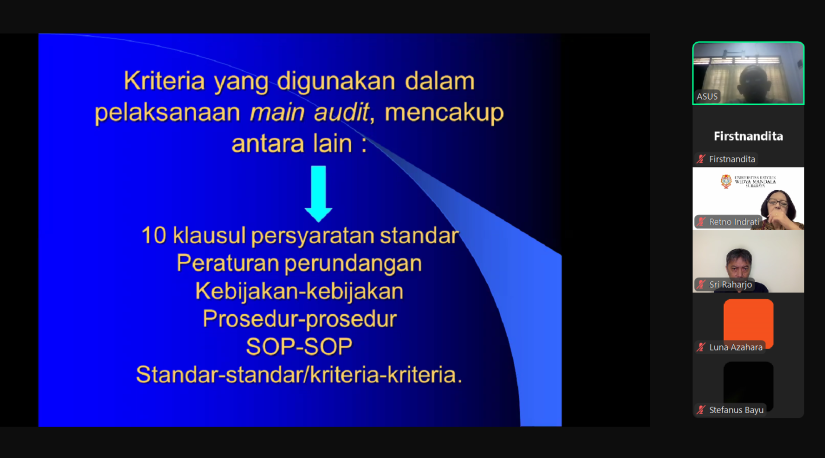
Product quality and consumer trust are critical aspects of various industrial sectors, including the food industry. Achieving consistent quality standards requires concrete efforts, one of which is through ISO 9001:2015 certification. This certification has become an internationally recognized standard for quality management, ensuring that each production process is managed effectively and adheres to quality standards.
By obtaining ISO 9001:2015 certification, food industry companies demonstrate a strong commitment to product quality and safety. Implementing this standard also encourages companies to continuously improve every operational aspect, resulting in products with reliable quality that consumers can trust.
To deepen students’ understanding, the Department of Food and Agricultural Product Technology (TPHP) UGM invited Agus Supriyanto from NADIYA Consultant as a guest lecturer on Quality Management on Wednesday (10/06). This guest lecture aimed to help students comprehend the necessary preparations for the food industry to obtain ISO 9001:2015 certification and the audit process stages conducted by certification bodies.
In his presentation, Agus Supriyanto divided the material into two main sections. First, he explained the preparations food industries must undertake to meet certification requirements, from setting up and ensuring that the quality management system aligns with the standards to establishing collaborative contacts with designated certification bodies. Second, he outlined the stages of the certification audit process conducted by certification bodies, including the initial audit, reporting of findings, and follow-up actions for necessary improvements before the final certification is granted.
Through this guest lecture, students are expected to gain insights into the process and challenges faced by the food industry in implementing ISO 9001:2015. This event also supports the achievement of the Sustainable Development Goals (SDGs), particularly SDG 9 (Industry, Innovation, and Infrastructure), SDG 12 (Responsible Consumption and Production), and SDG 4 (Quality Education).
Author: Firstnandita Keisha
